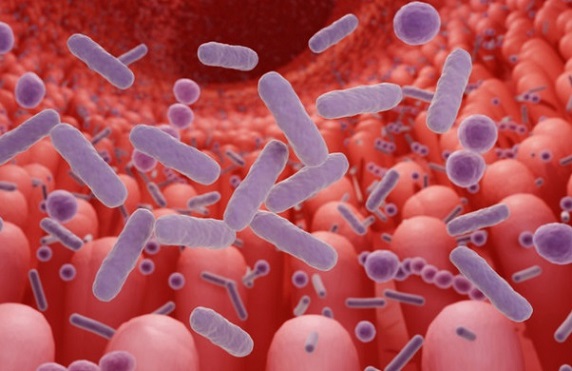Nikhil Prasad Fact checked by:Thailand Medical News Team Feb 03, 2025 2 months, 1 week, 3 days, 17 hours, 54 minutes ago
Medical News: Scientists from the University of California, Los Angeles (UCLA) and the Veterans Affairs Greater Los Angeles Healthcare System have been studying Akkermansia muciniphila, a beneficial gut bacterium that could hold the key to better gut and metabolic health. This unique microbe lives in the intestinal mucus layer, playing an important role in maintaining gut barrier integrity and regulating the immune system.
 The Amazing Potential of Akkermansia muciniphila in Gut and Metabolic Health
The Amazing Potential of Akkermansia muciniphila in Gut and Metabolic Health
Research has shown that people with higher levels of Akkermansia muciniphila tend to have better metabolic health, including improved glucose control, lower body fat, and reduced inflammation. On the other hand, those with metabolic disorders such as obesity and type 2 diabetes often have lower levels of this bacterium. This
Medical News report explores the latest scientific findings on the health benefits of Akkermansia muciniphila and its potential as a therapeutic probiotic.
How Akkermansia muciniphila Supports Gut Health
Akkermansia muciniphila is an expert at breaking down mucin, a key component of the mucus lining that protects the intestines. This process helps maintain the integrity of the gut barrier, preventing harmful substances from leaking into the bloodstream and triggering inflammation. The bacterium also produces short-chain fatty acids (SCFAs) like acetate and propionate, which serve as energy sources for intestinal cells and contribute to a healthy gut environment.
One of the most exciting discoveries is that Akkermansia muciniphila can promote the production of mucus in the intestines. This not only strengthens the gut barrier but also supports the growth of other beneficial gut bacteria. Researchers have found that supplementing mice with Akkermansia muciniphila leads to increased goblet cell activity, resulting in a thicker mucus layer and improved intestinal health.
Benefits for Metabolic Health and Obesity
In addition to its role in gut health, Akkermansia muciniphila has been linked to improved metabolic function. Studies have shown that higher levels of this bacterium are associated with better insulin sensitivity, which means the body can regulate blood sugar levels more effectively. In mouse studies, supplementation with Akkermansia muciniphila has been found to reduce fat accumulation and improve glucose metabolism.
Interestingly, researchers have observed that the beneficial effects of Akkermansia muciniphila are not limited to live bacteria. Pasteurized versions of the bacterium have also shown positive results in reducing obesity and metabolic disorders. This suggests that certain proteins on the bacterial surface, rather than live bacterial activity, may be responsible for its health benefits.
How Diet and Lifestyle Influence Akkermansia muciniphila Levels
The abundance of Akkermansia muciniphila in the gut is significantly influenced by diet and lifestyle choices. Studies indicate that diets rich in fiber and polyphenols, such as those found i
n fruits, vegetables, and whole grains, can help increase the levels of this beneficial bacterium. Prebiotic fibers like inulin and oligofructose have been shown to promote its growth, enhancing gut health.
On the other hand, diets high in saturated fats and refined sugars can reduce Akkermansia muciniphila levels, potentially leading to gut barrier dysfunction and metabolic disturbances. Additionally, certain medications, including metformin, a common drug used to treat type 2 diabetes, have been found to increase Akkermansia muciniphila abundance, which may contribute to their therapeutic effects.
Potential for Future Therapeutic Applications
Given its numerous health benefits, scientists are exploring the potential of Akkermansia muciniphila as a probiotic treatment for various metabolic disorders. Early human studies have shown promising results, with individuals taking Akkermansia muciniphila supplements experiencing improvements in insulin sensitivity, cholesterol levels, and body weight.
Another area of interest is the use of Akkermansia muciniphila to enhance cancer treatments. Some studies suggest that patients with higher levels of this bacterium respond better to certain immunotherapies, possibly due to its ability to modulate the immune system.
Conclusion
The growing body of research on Akkermansia muciniphila highlights its importance in maintaining gut health and metabolic balance. This bacterium plays a crucial role in strengthening the intestinal barrier, supporting beneficial gut microbes, and regulating metabolic processes. The findings suggest that increasing its abundance through diet, lifestyle changes, or supplementation could offer a natural way to improve overall health. Future research will focus on developing targeted therapies that harness the power of Akkermansia muciniphila to combat obesity, diabetes, and other metabolic conditions.
The study findings were published in the peer-reviewed journal: Nutrients.
https://www.mdpi.com/2072-6643/17/3/562
For the latest on Gut Microbiome, keep on logging to Thailand
Medical News.
Read Also:
https://www.thailandmedical.news/news/gut-dysbiosis-and-chronic-inflammation-in-long-covid
https://www.thailandmedical.news/news/probiotics-prebiotics-synbiotics-and-postbiotics
https://www.thailandmedical.news/news/probiotics-as-a-potential-ally-in-managing-covid-19-gastrointestinal-symptoms
